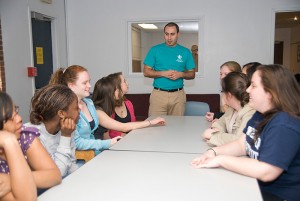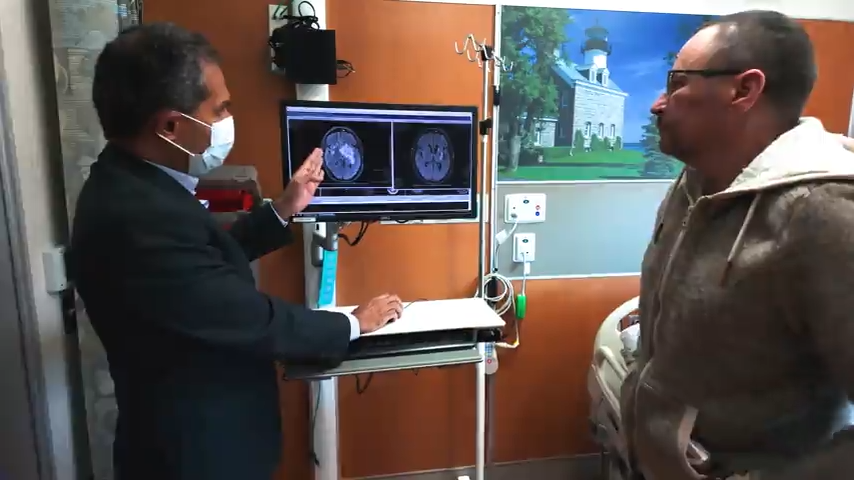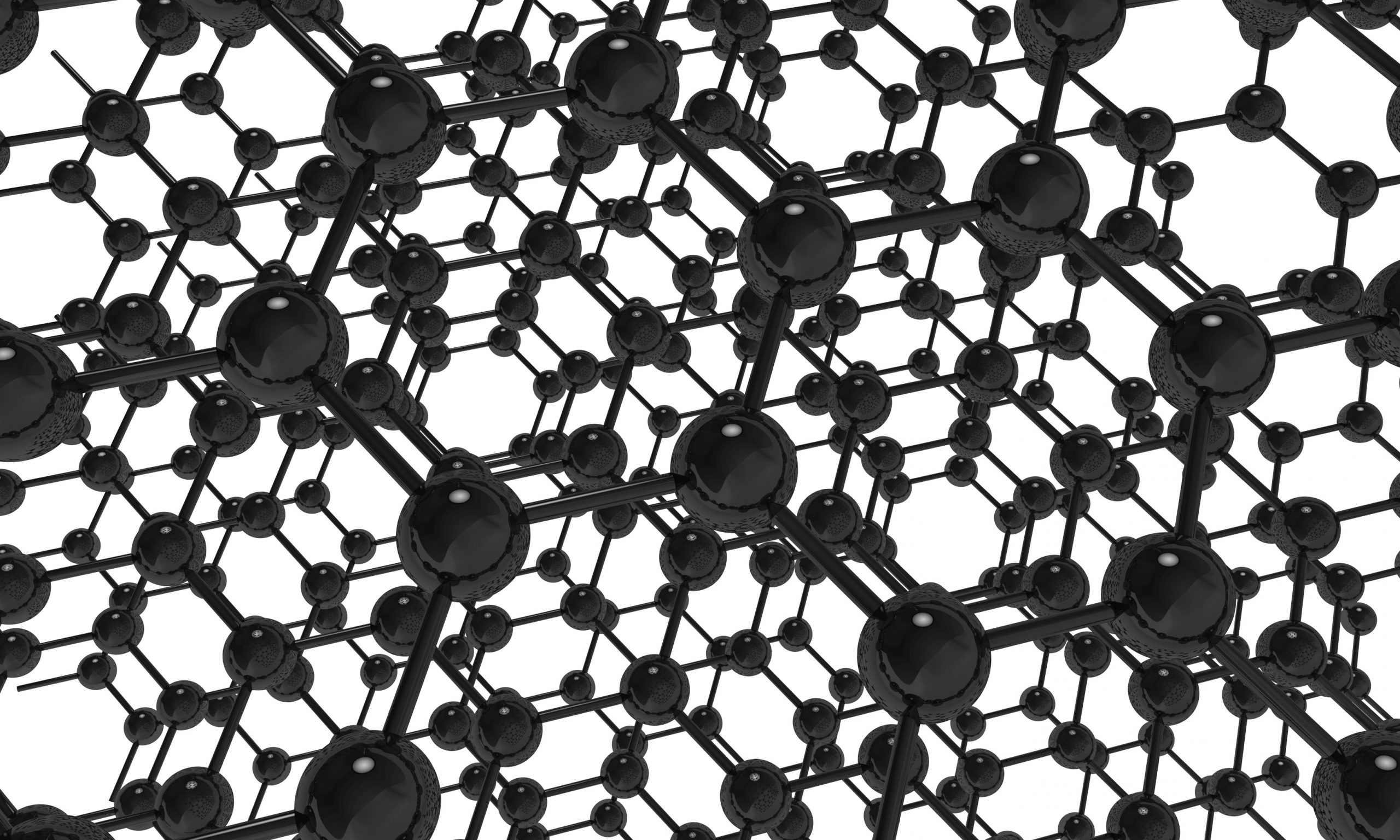Nursing. Honors. Community service. Women in math, science, and engineering. Fine arts. Leadership. German and engineering. The world, even.
More and more students at UConn are seeking residential learning communities that will pique their intellectual and social interests, whether it’s engineering students interested in jazz, international students hoping to fit into American culture, or students passionate about issues of social justice.
“Some of our learning communities are residential and some are not,” says David Ouimette, executive director of the Office of First Year Programs and Learning Communities.
“We are offering students opportunities to pursue their major and interdisciplinary interests inside and outside of the classroom. We want students to integrate their experience with support from other students, faculty, and staff who have the same interests and expertise.”

A concept popular at large research universities around the country, living-learning communities help students succeed, says Lee Williams, dean of students and co-author of the book, Learning Communities and Student Affairs: Partnering for Powerful Learning.
“They are a proven approach to increase student retention and enhance learning,” she says. “Research has shown that since they often incorporate course work from a variety of disciplines into the experience, they also enhance connections across campus between both faculty and students. The curricular innovations bring faculty and disciplines together as well as students.”
UConn’s living-learning communities will be expanded this fall to include EcoHouse and a Public Health-Public Service House, both located in West Campus, and Eurotech (German and engineering) in McMahon Hall. The University is also interested in opening additional living-learning communities over the next few years, including ones focused on areas suggested by students or faculty.
EcoHouse will be located in Hollister residence hall, and will be open to 120 students passionate about environmental issues, including 60 first-year students. Students will work on environmental projects and will serve as stewards of environmental sustainability around campus.
The building, which will be renovated before students move in, will include space for meetings and classrooms.
Another new community, Public Health-Public Service, will also include both freshmen and upperclassmen. It will offer students outreach opportunities in Hartford and in other locations through existing service learning programs.
Students who join the Public Health-Public Service house will enroll in a two-credit course each semester that will be integrated with a weekly community service experience.
The Eurotech community will provide students interested in both engineering and German with a variety of cultural and educational experiences, including a film series, guest lecturers from industry, study trips to Germany, visits to various companies in the region, and contact with German exchange students on campus. The program also offers engineering courses taught in German.
Interdisciplinary residential learning communities already on campus include:
- Community Service in Ellsworth Hall, which emphasizes volunteer work;
- Connecting with the Arts in Shippee Hall, which focuses on arts, including theatre, art, and music, and includes a group of engineering students interested in jazz;
- Global House in McMahon Hall for students interested in learning about global culture, politics, and arts, and/or studying or working abroad; and those who are in an academic program with an international focus or who are international students or have foreign-born parents;
- Leadership, Learning, and Life in Northwest, which allows students to explore their values and develop and practice leadership skills;
- Social Justice in a Global Community in Ellsworth Hall for students who want to celebrate intercultural perspectives of campus life, with a focus on topics such as human rights, equality, war, and the environment.
Major-based residential communities, such as:
- Fine Arts in Shippee Hall; Music in South Campus; Nursing in Rogers and South; (Pre-)Pharmacy in Towers; Women in Math, Science, and Engineering in Hale Hall; and Honors in Buckley Hall, for students in the Honors Program.
At Global House, boundaries of culture and language disappear, says Morty Ortega, associate professor of natural resources management and engineering, who heads the program. “We spend a lot of time getting to know each other, and we end up accomplishing a lot of things.”
The University also has non-residential learning communities in allied health, animal science, economics, engineering, exploring helping professions, pathobiology, and pre-teaching.


